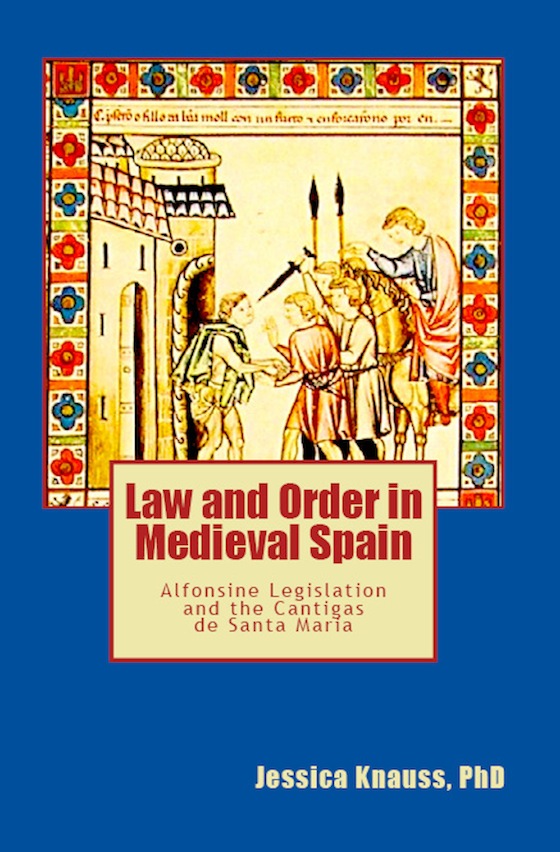
Although their milieu bore striking similarities to the Wild West, the people of medieval Spain were preoccupied with constructing valid laws and learning how best to abide by them. This obsession with legality comes out in epics, songs, stories, and even in miracles of the Virgin Mary. Scholars have largely failed to see the usefulness of considering the different types of text produced under Alfonso X together, preferring to look at them in isolation or in conjunction with later literature.
By investigating what the varied projects of Alfonso X’s scriptorium have in common, as well as how they diverge, we can better approach the underlying ideals manifested in each text. The thirteenth-century society they portray then comes into brilliant focus.
This book proposes a new direction for all such studies by suggesting unprecedented comparison between the Cantigas and the other texts from Alfonso X’s scriptorium. The legislative program, which presents the guidelines for daily life, manifests the king’s theoretical model for an ideal society. In the Cantigas de Santa Maria, time and again, these same ideals are dramatized for the edification of their public. In these songs, Alfonso allows Mary to work for him, promoting his political program for Castile.
Specifically, the legal material not only supports Cantigas analyses, but also provides a theoretical context against which the miracle stories play out. Comparing the outcomes with the legal ideal gives a more realistic and comprehensive picture of every day life all over Alfonso X’s Iberia. Both texts fulfill a didactic function that unifies the king’s disparate works and forms the foundation of Castilian culture.
Genre: LITERARY CRITICISM / European / Spanish & PortugueseThis book receives a sales boost yearly at Christmas, when it is showcased on a radio show!
The most appropriate single adjective for the corpus of cultural work produced under Alfonso X (r. 1252-1284) is “encyclopedic.” Books of history, astronomy/astrology, law, poetry and music, and even leisure activities have survived the vagaries of time bearing the king’s name as patron or as author. All of these works were state-of-the-art or ahead of their time, and all of them strive for the kind of A-to-Z completeness inspired only by a true thirst for knowledge. Yet these works also betray an inextricable utilitarianism. The King put his team of translators, experts and composers to work only when the project under consideration had a very specific use, immediately in Alfonso’s medieval Castile, or in a more delayed fashion, in the next world. The sobriquet “el Sabio” is well deserved, but not because Alfonso recklessly pursued any and all branches of knowledge out of pure lust for learning. Rather, each project was carefully chosen and carried out to an encyclopedic completeness characteristic of the thirteenth century because it met the minimum requirements for utility in the King’s mind. A large part of Alfonso’s wisdom, in this view, is an uncommon capacity for discernment.
This discernment, felt by all the critics who study any of the works in detail, gives a unity of purpose to projects that would otherwise seem alien to each other. The only way to gain a complete understanding of Alfonso X’s aims and motives would be to analyze the output of the teams of translators, historians and troubadours as a complex but coherent whole. Unfortunately, scholars have preferred to compare like with like, looking at non-Alfonsine literature before venturing into other fields within the same scriptorium.
| Language | Status |
|---|---|
|
Italian
|
Translation in progress.
Translated by Katya Bonetti
|
|
Portuguese
|
Already translated.
Translated by Bruna Araujo
|